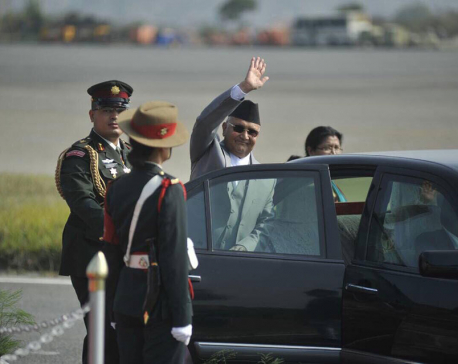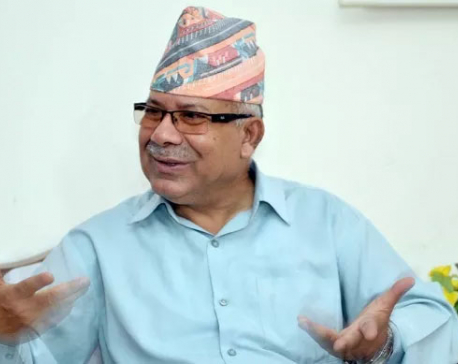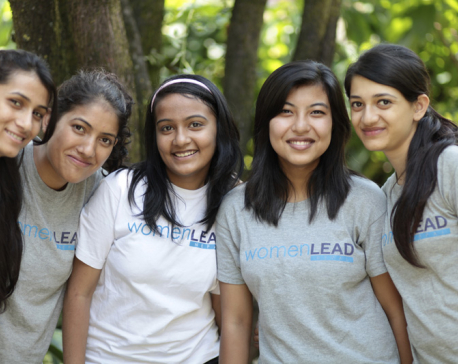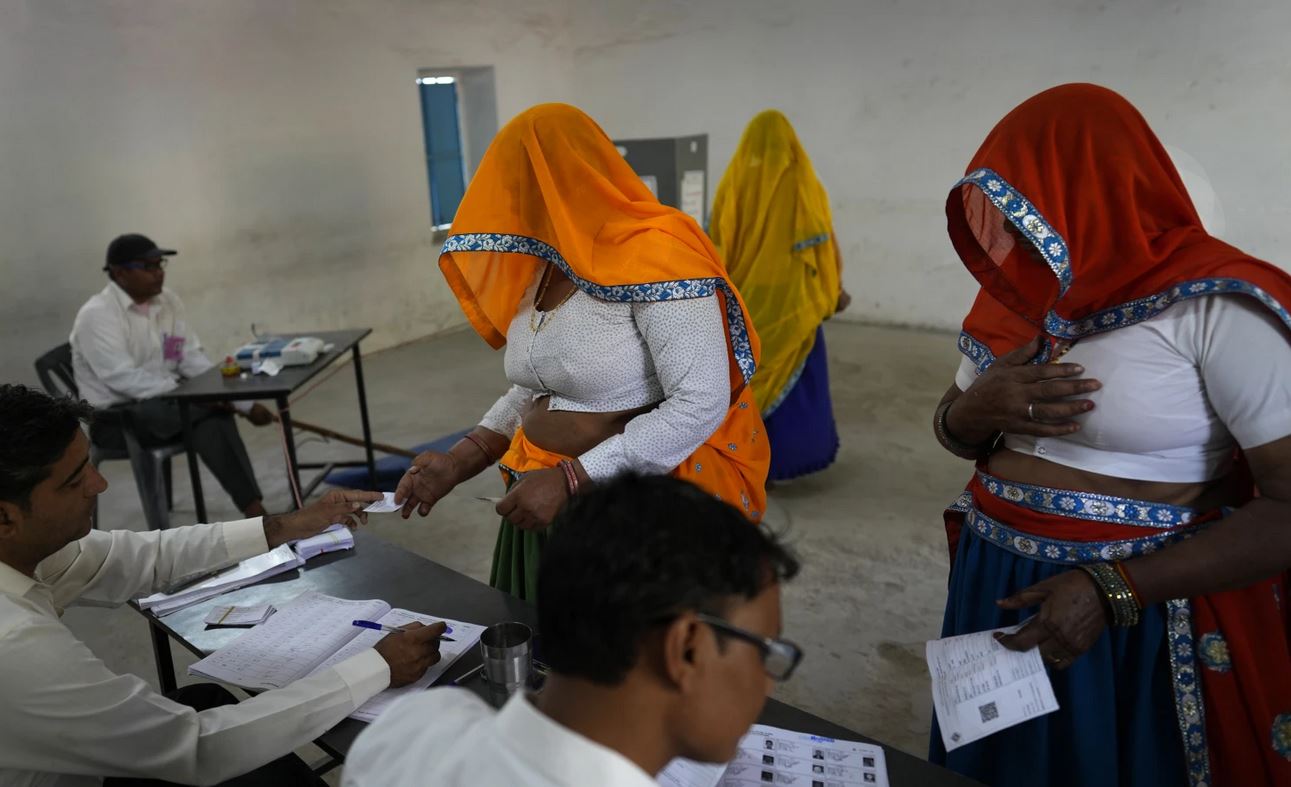
OR
As a Dalit girl is denied a room to rent, an int’l report highlights poor representation of Dalits in state’s judicial, law enforcement agencies
Published On: June 24, 2021 12:08 PM NPT By: SHREE RAM SUBEDI
Kathmandu, June 23: Since last week, Nepali press and social media are abuzz with news about how a Dalit girl was denied to rent a room in Kathmandu, expossing the deep-rooted caste-based discmrination in Nepal. Rupa Sunar, a journalist from the Dalit communty was denied to rent a room by a landlady in Kathmandu as she came to know she belonged to a so-called lower caste. The 2015 Constitution of Nepal, the country’s criminal code, and the Caste-Based Discrimination and Untouchability (Offense and Punishment) Act, 2011 prohibit all forms of discrimination against vulnerable communities, including Dalits.
Following a complaint lodged by Sunar, the landlady was arrested under the Caste-based Discrimantaion and Untouchability (Offence and Punishment) Act, 2011.
The same week, last Saturday, an international report on Dalit issues in Nepal was launched, with detailed assessment on the challenges and opportunities available for Dalit justice deferenders community across South Asia. Prepared by the American Bar Association- Center for Human Rights, the first report details out its assessment on the challenges and opportunities available for Dalit justice deferenders community in Nepal. The second is slated to dwell on Dalit issuees in Bangladesh, and the third will discusse Dalit issues in India. The overal report is entittled "Challenges for Dalits in South Asia's legal Community" while the first report "Dalit Justice Defenders in Nepal" evluates the lack of representation of Dalits in the justice sector and its impact on access to justice for the Dalit community at large, proposing both regional and country-specific recommendations to improve this situation.
“Untouchability” or the segregation of a certain class of people based on their lineage has persisted over centuries such that members of the “untouchable class” or “Dalits” are still subject to social, economic, and political discrimination even today in South Asia including Nepal.
In its major findings the report said that Dalits are not effectively represented in the state’s judicial institutions and law enforcement agencies. "While certain legal provisions have been created to help the Dalit community, its members still face discriminatory challenges while pursuing jobs in the nation’s civil service, including its police force. Further, with only five Dalit judges in the nation and few members of the community practicing law, Dalits are not effectively represented in the state’s judicial institutions and law enforcement agencies," it said, in its summary.
Of the nearly 30 million population in Nepal, Dalits have a population of three million.
The report laments that the agencies and commissions tasked with effectuating prohibition on caste-based discrimination are not performing well and with little progress in the justice sector.
"Not only does the lack of representation pose a problem in and of itself but access to justice is also impacted by this lack of representation as victims of caste-based discrimination or hate crimes are often left without effective recourse within the justice system. In many instances, both conscious and unconscious bias by policymakers, lawyers, judges, and police impede delivery of justice to members of the Dalit community," it said.
“While the Judicial Council Act of 2016 mandates that judicial appointments be made with the goal of “inclusion” as mentioned in the constitution, Nepal’s judiciary lacks representation from the Dalit community. Based on a report from the Judicial Council Secretariat in 2018, out of the 394 judges in Nepal’s supreme, high, and district court levels, only 0.5% are members of the Dalit community, with no Dalit being represented from the Madheshi Dalit community even though the community has faced particular challenges in recent history,” it said.
Not only the judges, the number of Dalit legal practitioners is nominal in Nepal.
"Currently, there are approximately 448 senior advocates, 18,091 advocates, 8,078 pleaders, and 1,105 writers (paralegals) working in Nepal’s legal field. None of the senior advocates are Dalits. Only 150-200 Dalits are advocates, and even fewer are pleaders and writers. Dalits, who have historically been deprived of the opportunity to attain legal education, continue to be deprived of opportunities within the legal profession despite recent trends of more Dalits obtaining law degrees," the report said.
The report argues that Nepal has an opportunity and a legal obligation to increase the representation of Dalits in the judicial sector.
In its recommendations to address the problem, the report recommends that all stakeholders — including government agencies, human rights commissions, bar associations, and NGOs — will need to establish programs and build capacity toward addressing caste-based bias and facilitate representation of Dalits within the justice sector. Saying that the current legal mechanisms in Nepal have often failed to end the crimes committed against Dalits, the report highlights a need in law and practice.
“Sensitization, capacity enhancement programs, training for government officials, including police, prosecutors, and judges, and also lawyers, are clearly needed. The poor conviction rate in cases of discrimination or crimes against members of the Dalit community can be attributed to both the lack of awareness by state officials of Dalit issues and the lack of representation of the Dalit community in the justice sector," it said.
The report also highlights the need for appropiate funding to Nepal Human Rights Commission, Nepal Bar Associaiton and Nepal Bar Coucil in order to address caste-based discrimination within the legal field. "National budgets, especially during a pandemic, should be Dalit-friendly and allocate funds for the implementation of anti-discrimination and untouchability provisions within the constitution," suggests trhe report.
In its recommendation to the International Community, the report demands that the the United Nations Office of the High Commission for Human Rights pursue outcomes from their report "Opening the Door To Equality: Access to Justice for Dalits in Nepal" released a decade ago as many of the issues raised in the report continue to impact the Dalit rights defenders. It also wants the US Department of Justice Office of Overseas Prosecutorial Development, Assistance, and Training to utilize its robust relationship with the Nepal Judicial Academy to provide anti-bias training to judges, prosecutors, and lawyers concerning caste-based issues.
You May Like This

What Nepal needs is India's friendship and support for growth: Nepal PM Oli
In an exclusive interview to The Hindu, Mr. Oli says the bitterness of past relations have been put behind them,... Read More...

Party's name will be Nepal Communist Party after merger: Leader Nepal
KAILALI, Feb 9: CPN-UML leader Madhav Kumar Nepal said that the name of the new party after merger between CPN-UMLand... Read More...

Helping women re-envision a better Nepal: Women LEAD Nepal
KATHMANDU,March 7: Women LEAD Nepal started as an idea that women and girls could change the trajectory of Nepal’s future and... Read More...

Just In
- Indians vote in the first phase of the world’s largest election as Modi seeks a third term
- Kushal Dixit selected for London Marathon
- Nepal faces Hong Kong today for ACC Emerging Teams Asia Cup
- 286 new industries registered in Nepal in first nine months of current FY, attracting Rs 165 billion investment
- UML's National Convention Representatives Council meeting today
- Gandaki Province CM assigns ministerial portfolios to Hari Bahadur Chuman and Deepak Manange
- 352 climbers obtain permits to ascend Mount Everest this season
- 16 candidates shortlisted for CEO position at Nepal Tourism Board






_20220508065243.jpg)











Leave A Comment